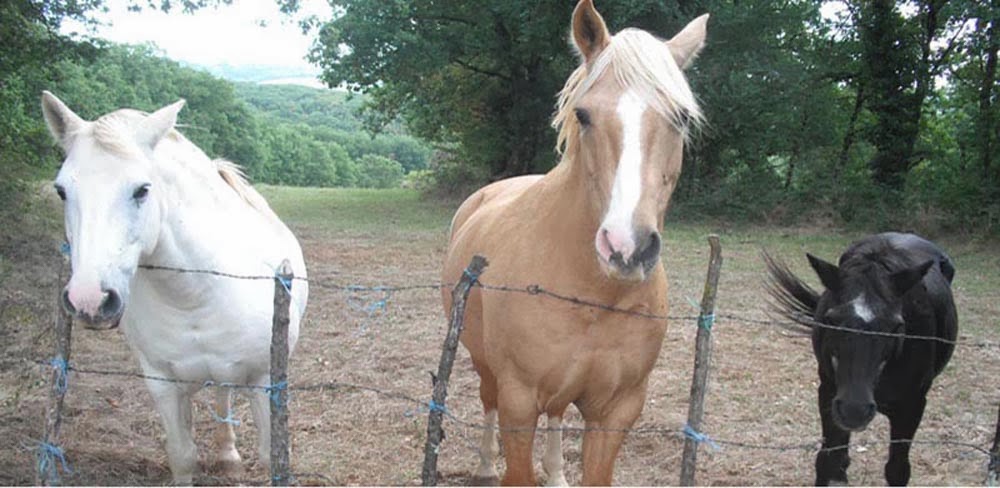Now we know the good news, that her condition is not contagious, it is allergy related. The bad news is that there is no permanent cure because it is an allergic reaction to environmental factors that come with warm weather, mostly reaction to flies and insects bites, but also to harsh sun, plus accompanied by secondary bacterial infections that arise when it is warm and humid. It is a well known condition that is genetic with ponies and older horses being more susceptible. In french it is called dermatite estival, meaning seasonal/summer skin disorder.
To manage it in summer, during the day when insects are most active, the best option is to to keep the horse sheltered and protected from the elements: insects, harsh sun, or the humidity that promotes the secondary infections. For Negrette living full time in the fields as she has been, there's not much hope to ease her suffering. Without shelter there is only the possibility of expensive protective blankets/coverings along with constant use of insecticides and repellants on the skin, neither of which work completely.
For now, in winter, it is a matter of undoing the damage from the previous warm season by cleansing and applying healing salves. So, one sunny day in November, with my current helper volunteer, Natasha, we gave Negrette a bath/shower with betadine scrub.
It was my first experience giving a bath to a horse and it is no easy work. Also considering Negrette had layers of dirt and crusty skin built up over many years of neglect, this is a huge ongoing job.

But she is looking better! Hair has regrown on bald areas
such as the base of her tail and her ears, and the sores elsewhere are starting to heal. The quantity of crusty, flaky, scabby dead skin shedding off is unbelievable and makes for many hours spent brushing and combing, cleaning and applying salve.
Many hours were also spent researching recipes for home-made equine moisturizing, healing salves and learning to make my own from ingredients such as baby oil, vaseline, zinc oxide, coconut oil, generic antiseptic spray, witch hazel,glycerine, tea tree oil, lavender oil and rosemary oil. Considering the size of a horse and the cost of a small container of skin salve sold at veterinary clinics, it helps a lot to concoct your own medicines if possible when funds are limited.
I am glad to be helping Negrette, but I am also very worried. Who will want to take her with this obvious health issue that needs constant care? The other two horses both are younger and more attractive with no other apparent health problems aside from the hooves which are getting better with time and treatment. Finding homes for them shouldn't be impossible once they are trained and rehabilitated. However, it is the rare person who would take the less attractive, old horse with health problems that require time and energy to manage. I hope I am not the only bleeding heart in the region.




